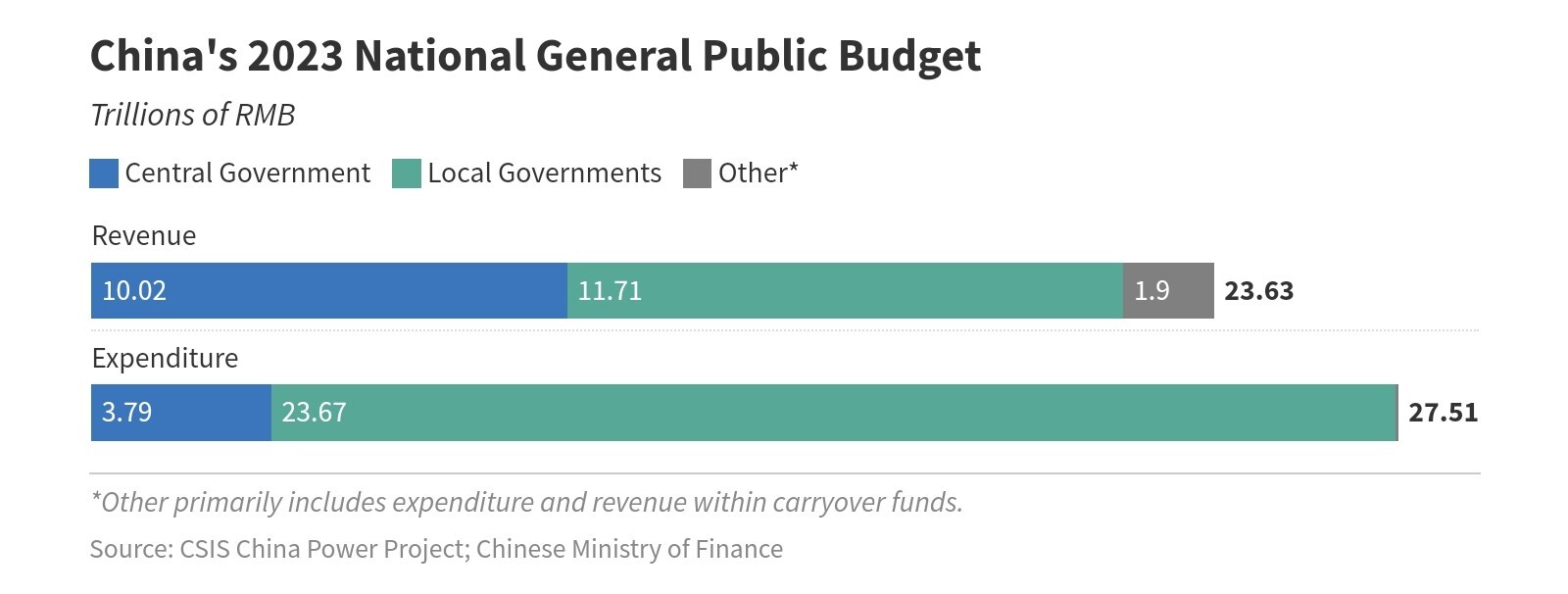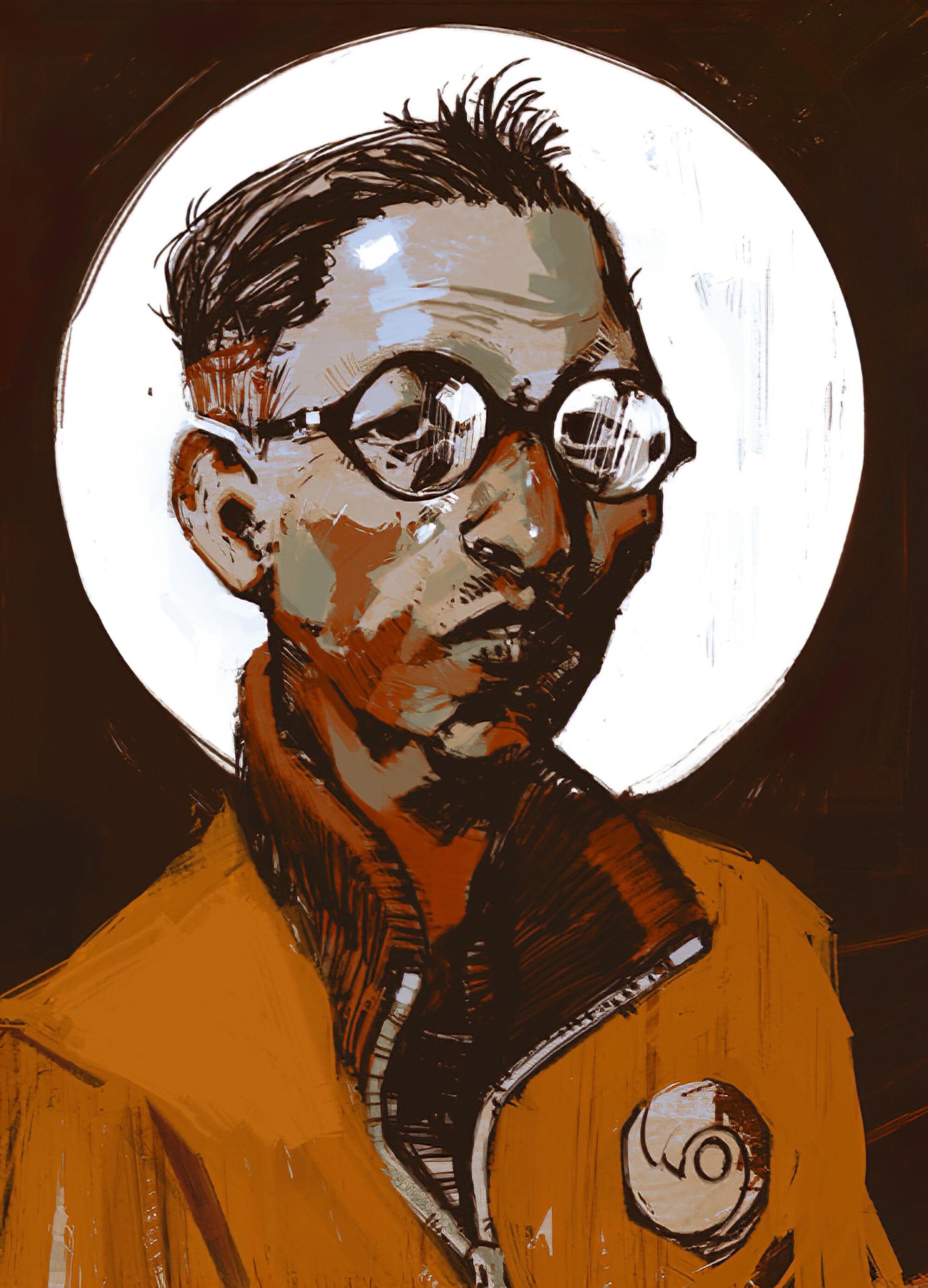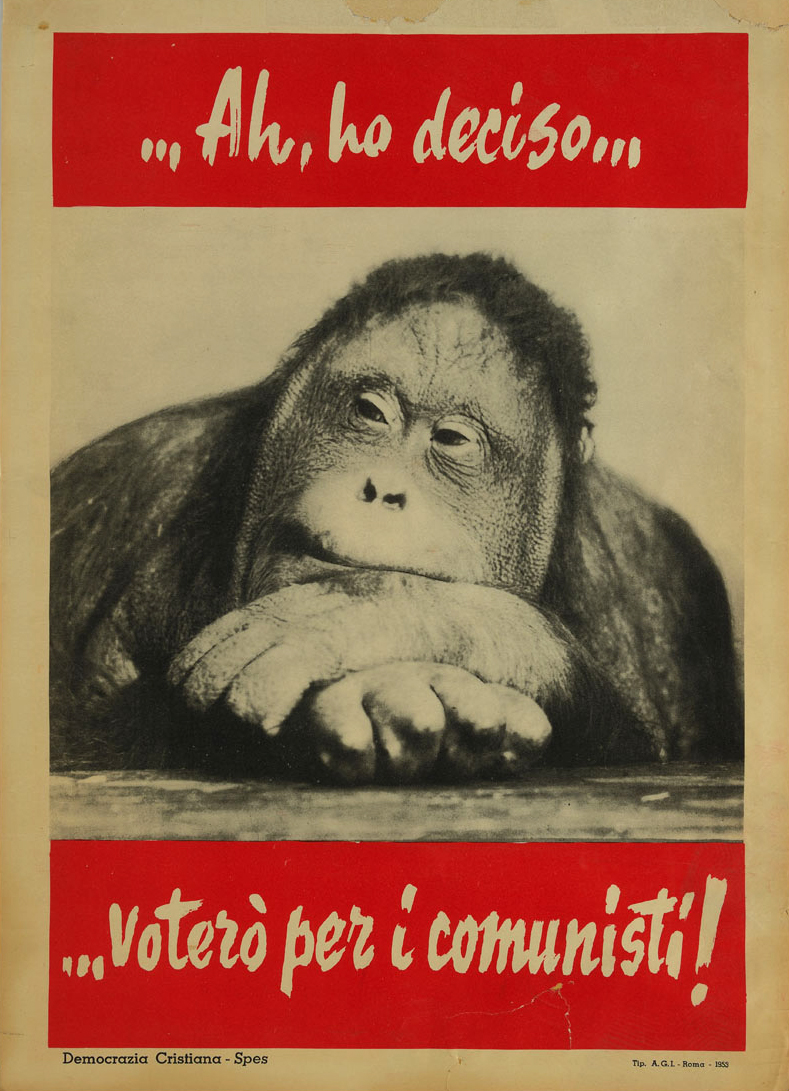- Why does China, a socialist country, have mega corporations like Tencent and Bytedance? Are they collectively owned by syndicates or unions? If this is a transitionary phase to socialism, can we trust China to actually enforce Socialism after this stage ends?
- Child Labor in factories: Myth or Fact? I have a Chinese friend who said he personally never worked as a child in China, but obviously if this was true not every single kid would have worked in a factory.
- Surveillance and Social Credit: are these myths, or are they true? Why would China go so far to implement these systems, surely it'd be far too costly and burdensome for whatever they'd gain from that.
- Uighur Muslim genocide: Is this true?
Thank you to anyone who answers, and if you do please cite sources so I can look further into China. I really appreciate it.
edit: I was going to ask about Tiananmen Square, but as it turns out that literally just didn't happen. https://www.telegraph.co.uk/news/worldnews/wikileaks/8555142/Wikileaks-no-bloodshed-inside-Tiananmen-Square-cables-claim.html
https://leohezhao.medium.com/notes-for-30th-anniversary-of-tiananmen-incident-f098ef6efbc2
https://www.cbsnews.com/news/there-was-no-tiananmen-square-massacre/
- Because of their market pivot, which was to avoid having the whole project get destabilized and destroyed. Their stated intention is to become a socialist country. I don't think it's worth thinking about it in terms of trust unless you're a Chinese citizen. Worst case they don't pivot and the world is just completely fucked.
- There's child labor of course, but that's just a feature of capitalism.
- None of my fiance's family has ever interacted with any kind of social credit system, it's apparently mainly for business entities.
- Certainly nothing like what's been reported breathlessly in Western media.
Yeah the "Social credit system" doesn't exist. There's some kind of business credit system that may be the source of the social credit system bs, but no system of tracking individual behavior and using it to punish and control people exists.
Yeah sources like FP do align with that: https://foreignpolicy.com/2018/11/16/chinas-orwellian-social-credit-score-isnt-real/
I disagree with FP plenty, but the headline at least fits.
Re 4.) - Here's the UN's report on Xinjiang. It's the closest thing to an unbiased report you're going to get.
https://www.ohchr.org/sites/default/files/documents/countries/2022-08-31/22-08-31-final-assesment.pdf
Pretty much everything else that's not from the Chinese government is various degrees of creative bullshit. The Chinese government's obviously got a bias and an agenda. If you want any kind of idea what's "really" going on (was going on, apparently they wrapped up their counter-terrorism operation a year or two back) this is probably the best resource available.
- China itself doesn’t even claim it is in a preliminary stage of socialism yet and it is easy to misunderstand the decisions they have made and the socialist character of their government if the depiction of Marxism you have been given is simplistic and idealist, which is typically the case in countries like the US where Marxism is intentionally misrepresented to people through the media and in schools (including most higher ed). China is a socialist state, in that it has a communist party in political control (and despite what some say the CPC has maintained a working-class character and it is not controlled by capitalists) but it has not achieved socialist development by their own estimate, although they plan on achieving it by 2050.
At its core, Marxism isn’t simply a critique of capitalism (although this is an essential component of Marxism, no doubt) but what enabled Marx to give such a (nearly) complete understanding of the political-economy of capitalism and develop so many core socialist principles was his application of a logical tool, a system of reasoning to help understand social change. Marx was a materialist, believing that current conditions can be understood by studying the world as it is and evaluating its history. He used the hegelian concept of the dialectic to help create a heuristic to evaluate and understand social change. It created a revolutionary change in social understanding by appying scientific principles to history and society. It is still a fundamental part of entire academic fields such as sociology, although it has been sanitized by a large extent and his class analysis has been removed wherever possible from “serious” academia.
The development of socialism didn’t end with Marx, but this philosophical underpinning is essential when it comes to understanding the historical development of socialism in China, the USSR, Vietnam, Cuba, or anywhere. The key is that Marxism strives for a scientific understanding of social change and Marxists believe in working with the world as it exists and transforming it into a better world in the context of that reality
China is a large country with over a billion people, and it has contradictions, like any place. Despite the victory of the Chinese people over colonialism, Japanese imperialism, and compradore-capitalist reaction, the newly minted Chinese state, the PRC, was undeveloped and impoverished. Despite historic gains made during the Mao period (the quickest rise in life expectancy in human history) the development in the country was still uneven and it became clear during the Sino-Soviet split that survival itself would require a realistic appraisal of geopolitics and concessions that might prioritize the survival of their political system and their economic development over other important principles. This is somewhat comparable to the NEP period in the soviet union that Lenin described as a retreat.
China made a bargain with US imperialism to open itself up to foreign capital and to allow market forces to exist within parts of its economy. This would ease the threat of imperialist military encroachment, allow their economy to develop, and give them access to technological development… for a time. The existence of markets introduced contradictions and social problems they would have otherwise avoided (like exploitation, including instances of child labor in the private sector, and the creation of billionaires), but China did not surrender political control to capital and maintained state control over vast parts of its economy. It also maintains control over its own trade.
You can tell China did not surrender political control, or its state has not become capitalist in character in two major ways: it did not experience the social disintegration, corrupt firesale of public assets, and economic decline that the Soviet Union, and Eastern Europe at large, explicitly ended their socialist systems (undemocratically, I would add). The second way is that as China has made a leftward turn and asserted control over markets to maintain social development for the good of its working-class, US/EU capitalists have been screeching and wringing their hands and the US has begun a feeble attempt at decoupling and military containment. It was somewhat an open question until that point, but mostly to outsiders.
If you read their documents and perspective as they write it, it is clear they were primarily evaluating the world and making decisions as Marxists the whole time … although the CPC is not monolithic and their internal factions certainly has elements of liberalism within them at times. Even the market reforms have always explicitly been done under the notion that they were not completely abandoning socialist principles, but neoliberals and capitalist realists were quick to think that any level of economic liberalism would inevitably lead to political liberalism. Given what occurred in the 90s, it was a bleak but not unrealistic assumption
I think what you and other folks could do with realising more is that China is an absolutely massive country with a population far exceeding that of somewhere like the US. The answer to all of your questions except maybe (1) is “it’s complicated”. There are massive differences not only between rural and urban areas, but also large deltas between policy, compliance, and enforcement, in almost all areas. The life of, say, a young professional in Shanghai is closer to a similar lifestyle in London or Toronto than it is to that of a migrant construction worker in the same city, whose lifestyle is vastly removed again from that of a traditional village dweller in Xinjiang. For each of those there will be different levels of policy, compliance, and enforcement when it comes to something like surveillance, religious practices, or age of entering the workforce. You won’t get any real understanding of China by abstractions or generalisations, or even by reading policies or laws (and that applies to both detractors and supporters).
I don't know much, but from what little I know that tracks. My understanding is that local governments send information up and higher authorities send resources and policy down. Policy implementation is the responsibility of local governments at fairly devolved levels.
Which was arguably one of the biggest issues with their covid response, it caused inconsistent restrictions and support programs in different areas
I’d still have killed for a fraction of that response by the US, but that was what people in China were complaining about
That statement by Blyth has also stuck with me for years, I do think I've seen it sourced though that something like 20% of government spending is executed by the central government and 80% by the regional governments down.
- Show

This is from the CSIS article, which is obviously an anti-China ghoul think tank, but the source cited is the Chinese Ministry of Finance.
I can't speak for child labor, but I haveread about efforts to crack down on business owners that use enslaved people for labor. The article I read discussed the difficulty of identifying enslaved people who are being forced to work in brickmaking kilns, as the locations are often remote and the victims are not visible. It discussed how government investigators responded in an incident where they received a tip-off and were able toliberate several people, then clean house in the corrupt local government structure that was colluding with the business owner.
Here's an article from China Daily from 2007 highlighting one of the operations to crack down on slavery in the brickmaking sector.i picked China Daily because I believe it's biases - pro-china, supportive of the government - are likely more useful and informative than whatever bonkers propaganda western sources were reporting.
https://www.chinadaily.com.cn/china/2007-06/15/content_894802.htm
Everybody can likely answer these better than I can but I'll give you a rare answer for 1. that I hardly see for some reason
Among many reasons, one of the most important ones is that China needed to reform their markets from wholly state owned to allow private property, which of course is why there's megacorps right now
The reason is that the US (and thus, the entire world by extension) had sanctioned China when all their industries were still state owned. China was cut off from trading with the entire world and even when they had a famine, the US would not let up sanctions or trade food with them
Thus, Deng reformed markets and allowed foreign capitalists to invest money in the country and exploit Chinese labour so that they could in exchange and acquire goods, resources, and knowledge from the rest of the world
If you wish to read more about this from an academic standpoint, the USSR also did something similar
https://www.marxists.org/archive/lenin/works/1921/oct/17.htm
Someone on another website made a hobby of posting quotes about the need for working alongside capitalists for resources and knowledge. Then when people started complaining about Dungi$ts ruining M-L, they would reveal it was another NEP quote from Lenin and the picture of deng in a cowboy hat was unrelated.
Tried to keep the answers consise, I'm sure others will expand on your questions as well.
-
China is a socialist nation because it's run by the CPC (which itself answers directly to the people of China), but it still uses the capitalist mode of production (i.e. the means of production are held by capitalists in order to generate profit). This is largely due to Deng Xiaoping's market reforms of the 80's. As a result, there are billionaires and corporations, but also unions, co-ops, and of course outright government-owned operations (think Sinopec or the Bank of China). Red Sails has a great article called China Has Billionaires for further reading.
-
I'm sure child labor exists in China - they've gone from an isolated rural economy to a global superpower in 40 years, that's not enough time to be perfect liberators on every issue. But as with most aspects of Chinese life, the government is actually working on improving people's material conditions, so things like child labor will continue to be less and less common. Of course, if you live in the US, child labor is extremely prevalent especially in poor communities and illegal immigrants. And of course it's getting worse with red states racing to rip up child labor protections in the name of saving businesses when "no one wants to work". See Rueters about the Alabama Hyundai factory or Wapo about the kid killed in a Mississippi poultry plant.
-
As with all western reporting on China, the surveillance aspect is hugely overblown. A lot of the claims end up being silly shit like how westerners will swear up and down that Winnie the Pooh is banned in China when you can buy his merch at Shanghai Disney. And social credit falls in the same boat as its pretty similar to credit score systems in the west - the main difference being that China won't force you into homelessness and poverty because your credit is bad lol. I don't have a good article to break it down, I think this subject would be best understand by people actually living in China.
-
Big no on this one, and that's if you mean "genocide" as in "actually liquidating an ethnic group" or the recent pivot to "cultural genocide" via teaching Uighurs Mandarin. Qiao Collective has a great educational piece on this to deep dive, but the short of it is that the claims of genocide of any variety come from explicitly anti-communist westerners who fail to provide any actual evidence.
-
-
If you had to start from a feudalistic backwater country, got sanctioned hard for 30 years and fought in 2 major wars, could you suddenly press the communism button and develop full centralized communism? Exactly. Same goes to Cuba, DPRK, etc.
-
Myth. If you really wanted to complain about child labor, look no further than the good old US of A.
-
myths. First, every government does mass surveillance of some kind., Second of all, social credit is literally too dumb to exist. However, FICO scores are very real.
-
all "evidence" for xinjiang comes from Adrian Zenz, a christo-fascist crackpot who hates Jews. And also testimonies from like 2 women. Where are the refugees?
Sorry if I'm coming off as a bit hostile. I've just dealt with so many libs on lemmygrad, it's kinda hard to go nice.
all "evidence" for xinjiang comes from Adrian Zenz, a christo-fascist crackpot who hates Jews. And also testimonies from like 2 women.
This is not the case, however the situation is also more complex and China itself did implement plenty of suggestions of for example the OHCHR Assessment. However China did hand in an extensive own report, too. I write this comment in answer to the post creator.
The sources of Zenz ought to be ignored, the complexity of anti terror measures, combined with other measures mean that a one size fits all Western response will fail and mostly increase Sinophobia.
China is regularly participating in establishing frameworks for human rights and introducing policy to better human rights: https://www.ohchr.org/sites/default/files/HRBodies/HRC/RegularSessions/Session40/Documents/A_HRC_40_6_Add.1_China_E.docx
China did answer the Xinjiang report: https://www.ohchr.org/sites/default/files/documents/countries/2022-08-31/ANNEX_A.pdf
Plenty of allegations are answered well and cleared up. However the report is not able to clear up all propaganda.
Xinjiang report summary: https://ishr.ch/wp-content/uploads/2022/10/OHCHR-Xinjiang-Report_Explainer_EN.pdf
Xinjiang report: https://www.ohchr.org/sites/default/files/documents/countries/2022-08-31/22-08-31-final-assesment.pdf
A major framing point is the question of what is acceptable in terms of education and anti terror action. The US did deport people, imprison people without due process, imprisoned people, torture people etc. Of course we on this site are critical of those actions, plenty in the US defended them. The ongoing cultural genocide and more in the US is barely a topic for most. So any discussion of China - especially on public boards - will mainly be focused on Sinophobic comments. I for one am supportive of state action which allows young women who are married to have room and board in education facilities in which they get education (reduces segregation) and enable them to more likely have own incomes. This is one of the measures that happens in Xinjiang, yet this is critiqued since what happens is often bundled up.
If you wanna know stuff it is good to get the Chinese perspectives (which means of a broad spectrum of people living in the region as well as the reports of the government), which is hard to get through mainstream media sites. Then if you compare the actions in Xinjiang compare them with other state actions, too.
On the EU border tens of thousands die every year and plenty are imprisoned for years on end in camps, often in open breach of international law, norms and EU laws, too, while people working against it are partially criminalized.
-
All labor is exploited
no child labour is way worse than doing it to adults. Don't be pro child labour what the fuck
you responded to a claim about child labour by claiming all labour is exploitative which does seem to be equating child labour with general labour rather than recognising it as distinctly worse
So do you think that child labor is distinctly worse than adult wage labor or not? And if you think all labor is exploitative, do you think wage slavery is no different than PMCs in the imperial core on salaries? @usernamesaredifficul@hexbear.net made a perfectly valid point that you seem to be very eager to avoid even addressing. And tbh, you're the only person here displaying anger, (and doing so as a 5-day-old account blocking one of the most prolific names on hexbear
 ).
).I'd rather **** myself then be subject to that kind of internet dialog.
You'd rather (not gonna repeat it actually, deserves a cw) than have your preconceptions and views on economics be mildly questioned? It was suggested you said something that might have some issues and if that elicits this kind of response from you, I don't know what to say but that I don't know how you've survived saying anything on the internet ever. This is shockingly over the top, but whatever. It shouldn't matter if you actually told the truth about refusing to read the people who respond to you.
https://redsails.org/china-has-billionaires/
https://redsails.org/the-xinjiang-atrocity-propaganda-blitz/
-
Using a capitalist model to build up productive forces is their official policy. It's not what I'd choose personally. But their actions show they do actually believe in this policy - they routinely execute billionaires for running their companies contrary to the public good - so it's not just a lie atop a de-facto capitalist system.
-
China is a huge country, which is governed by a giant pyramid-structure of elected officials, some branches of which are corrupt. Child labor is illegal, but if your mayor is cool with bribes, then you can do it anyway. China tries to crack down on corrupt officials constantly, but it's still a pyramid-shaped hierarchy, so I doubt they'll ever fully succeed.
-
Surveillance: not particularly more or less than the US (which is too much of course). Social credit isn't really a thing.
-
There was an ongoing project to imprison and reeducate Uighur Muslims who were suspected of having radical Islamist ideology. It's supposed to be winding down now, but I haven't checked recently. If such a program never overstepped, and never had abuses of power, I will eat my hat. But Adrian Zenz is a liar and a crackpot, and all the wildest stories trace back to him.
My take on the Xinjiang thing was that there were abuses of human rights - arbitrary arrests, people being detained for several months without trial or having committed a crime, and a few other things.
However, this was China's program for dismantling Islamist terrorist groups operating on their borders, and it should be evaluated in the context of other nation's anti-terrorist efforts during the gwot.
What China did wasn't good, per se, but given the available information it seems to have focused more on non-lethal and propagana interventions than the west's policy of "kill lots of random people and wonder why the terrorism didn't stop".
In brief; China's human rights violating anti-terrorist program was far less vicious and murderous than America, Europe, and their ally's human rights violating anti-terrorist program. That does not mean that they didn't violate human rights, nor does it mean that parts of China's program weren't silly and ineffective (making people you've detained sing propaganda songs during their confinement? Really?)
Again, the un report is the closest thing to a neutral report on the matter I'm aware of and is very much worth reading.
-
From what I understand it's worth reading about the NEP/New Economic Policy that was in place in Russia shortly after the revolution to get a better grasp of what's going on with China's capitalism. My understanding is that in both cases the goal was to leverage capitalism for economic growth before implimenting socialist methods.
The NEP is definitely relevant, insofar as in both cases they can be interpreted as pragmatic responses to certain situations in order to develop productive forces by allowing capitalistic economic relations.
The difference is that the NEP was far more clearly a matter of existential pragmatism after the civil war. The Dengist reforms, it could be argued were less a matter of survival. The Maoist/Neo-Maoist view is that they represent a counterrevolutionary bureacratic tendency with behaviour that mirrored in some ways petit-bourgeois ideology that Mao was very explicit throughout his life in warning about and attempting to combat. Hence the purges of Deng and Liu Shaoqi.
Defences of these reforms often argue either that they were necessary for China's survival, or that they are a grand strategic move to get the West to move its productive base to China. I think that the latter argument is stronger than the first.
These defences often hinge on the assumption that the period of the Cultural Revolution, or the Maoist period in general, were periods of serious economic failure. Now there are massive failures here, notably the Great Chinese Famine and much of the disorder and violence of the Cultural Revolution, but the idea that Chinese was rendered economically backward by these periods is simply false. It continued to grow, develop and industrialize greatly during this period. The Dengist reforms were introduced after a period of great socialistic economic development, whereas the NEP was introduced after the desolation of the civil war. The economy had barely even introduced capitalism out of feudalistic socio-economic and political relations in Russia. China already had developed institutions and infastructure in place, and this was not at all comparable to War Communism, which was initially and largely seen as a necessity, and only later on the left-wing of the part was it seen as a virtue.
If we say that both had the similarity of introducing capitalistic elements into the economy in order to allow certain kinds of development of the economic forces, the historical conditions in which they were introduced were very different, and this changes the meaning, purpose, function and effects of the policies, despite their similarities.
https://hexbear.net/post/281955?scrollToComments=false
Is a 10 lecture series about Chinese development, it is a bit slow, but gives a good overview.
When you add Mao, Deng and Xi thought and Socialism with Chinese characteristics you have a very good foundation. However a couple of books about history would be relevant, too.
Maybe one little thing since you might be coming from a Trotskist international outlook. During the first couple of crisis the CPC control of China was a much different one that the one Soviets had after the Russian or October revolution. The preceding Chinese state (not only due to civil war and external attack on the country) was a centralized one but its executive power was weakened at that point and in some rural regions, but also in some urban areas outside the countries main area the influence from the government was not as strong. After the revolution there remained a lot of de-centrality though with a growing professionalism there were both movements for centralization, but also leading by objectives in which the cadres were schooled and involved in the political process, but implementing objectives was sometimes their deal. Over time the CPC did expand more on how stuff ought or could be executed, but in a similar but different vein the experimental regional aspects of Chinese governance are a feature of the system.
Zhou Enlai and Mao were not controlling people directly, this means the struggle for people's minds was more prevalent than it would've been in some other states. Of course the further you go away from the (civil) war the less true it became.
Why does China, a socialist country, have mega corporations like Tencent and Bytedance? Are they collectively owned by syndicates or unions? If this is a transitionary phase to socialism, can we trust China to actually enforce Socialism after this stage ends?
The "capitalist roaders" won as Deng and his allies came into power. They were Marxist, but wanted to approach China's development very differently - by allowing markets, i.e. a form of market socialism - and doing two mutually-reinforcing things:
-
Seek (qualified) foreign investment and build up China's productive forces, which is to say, build up heavy industry, light industry, services, etc, the whole shebang.
-
Do this at the expense of their own exploitation at the hands of imperialism. Accept the exploited country arrangement, but on their terms. Create an export economy, but one of commodities not raw materials. Depress wages (to an extent), depress exchange rates.
This resulted in an entanglement as well, a defensive strategy against imperialists. It is not easy for, for example, the US to cut off China, because it exported most of its manufacturing base to China, and China took over most new manufacturing since.
There's plenty to criticize (carefully!) on this path, but one thing is for sure: China's model coincides with its continued existence, which is more than you can say of, for example, the USSR. It is also in a strong position, having developed massively and lifted a billion people out of poverty in the last few decades.
To go over your other questions:
-
China's government owns or co-manages many companies, usually when they exceed a certain size. Some are co-ops, with government mandates. Many are also private companies operating in special economic zones, i.e. market zones. China will also heavily regulate many industries.
-
The question of when something is Real Socialism (TM) should be fuzzier, imo. There are many different socialist projects taking different approaches to gaining and wielding the power of the working class and we should (critically) support all of them. China is going in a good direction and has a seemingly valid strategy.
Child Labor in factories: Myth or Fact? I have a Chinese friend who said he personally never worked as a child in China, but obviously if this was true not every single kid would have worked in a factory.
Generally a myth. It's a real, large, diverse country, but has made huge strides to create an education-filled childhood for its people.
Surveillance and Social Credit: are these myths, or are they true? Why would China go so far to implement these systems, surely it'd be far too costly and burdensome for whatever they'd gain from that.
Outdoor surveillance is no worse than London. It's a myth in that it's ridiculously exaggerated and not fairly compared to surveillance in the countries that make anti-China propaganda.
Internet surveillance is probably about the same as well, but China's government acts on it more often. Not a ton more, but they do look out for various claims/behaviors and will take action in some circumstances.
Social credit is largely a myth. It's basically the same as a credit score.
Uighur Muslim genocide: Is this true?
No. Liberals are doing an old trope of genocidal trivislization by putting this in the same category as the holocaust. Happy to go into a critical look of what's happening, but the dominant western narrative is inventive and exsggerative.
-
- Combination of maintaining a financial incentive for the global bourgeoisie to protect China and oppose things that would harm it because it is in their financial interests to do so, vs a centrally planned economy with publicly owned SOEs. 60% of the Chinese economy is state owned, the rest is there to ensure that the world doesn't do to them what happened to the Soviet Union.
- Myth in the way the media and gossip portrays it. Are there probably a handful of instances slipping through cracks? Probably. They're punished severely.
- It's a credit system. Surveillance could feasibly exist in the form of centralisation of all things in the anything app they use, with everything going through one app that's an easy point of "we know you did X and when". GCHQ and NSA are doing this too though and I suspect far worse.
- Completely false. This takes hours to debunk though, lots of that information is here - But I'm also willing to just straight up answer direct questions about specific accusations, events, etc, if reading a book's worth of information in one sitting isn't your jam and conversational back and forth works better. I know there's A LOT of it. TL;DR: Lots of terrorism resulted in a re-education program. Terrorism stopped. US no longer had reason to be in Afghanistan as a result of it.
China has actually built thousands of new mosques in the past decade or two
Those accusations all ultimately source from the ASPI, which takes a large chunk of its funding from American defense contractors.
A lot of it is also verifiably false from more recent publically available information. Notice how most of the mosque demolition allegations stopped around 2020? Its because there's now enough openly available evidence go the contrary that it's now embarrassing.
Plus, just because some mosques are demolished does not mean evidence of persecution. Xinjiang is following the general trend of urbanization. When hundreds of thousands of people move from villages or smaller cities into large cities, new mosques are built and old mosques are converted or torn down.
Thanks. That is what I figured. It’s insane how much American propaganda comes up on this topic, all sourced to think tanks with names like The Society for the Preservation of Freedom














